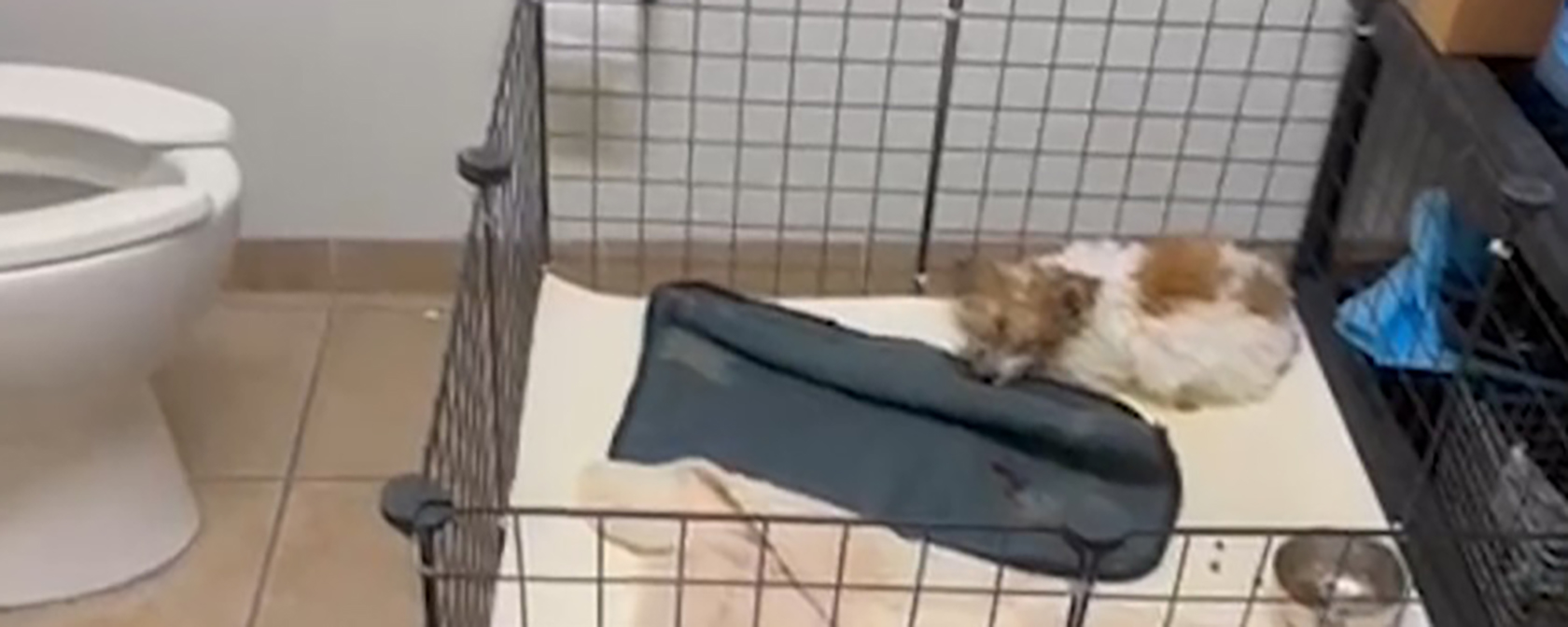By Sara Amundson and Kitty Block
In a pet store’s back room, a tiny brown-and-white Havanese puppy was vomiting and lethargic—and left entirely alone in a pen. On seeing her in that state, our undercover investigator alerted Puppy Heaven’s manager, urging that the dog needed to be seen by a veterinarian. When the staff refused, the investigator alerted law enforcement authorities, who insisted that the store manager take Cindy Lou to a veterinarian.
It was too late.
At the veterinarian’s office, Cindy Lou died. The records we obtained showed that her cause of death was liver failure due to congenital liver disease. Her suffering was extended because the pet store failed to get her diagnosed earlier.
Cindy Lou’s photographs remained on the store’s Facebook page for more than a month after she passed. A member of our team called the store and posed as a customer interested in Cindy Lou and was told that Cindy Lou had “been adopted.” As of the time of writing this blog, Cindy Lou’s picture is still on the store’s Facebook page.
Cindy Lou’s death, and the store’s failure in its duty to provide care for her, highlights the dysfunctional and systemic cruelty of a low-grade industry that profits from selling puppies in retail pet stores and relies on its poorly trained staff to give ad-hoc care to fragile, ailing puppies. Such stores typically wait until puppies are deathly ill to seek emergency care.
At the puppy-selling pet stores in Nevada, our investigators found several more puppies with breathing problems, lethargy, vomiting, infections or bloody diarrhea.
Our full report presents findings from our focus on stores including the Puppy Heaven in Las Vegas, the Petland in Henderson, and four Puppies for Less stores in Las Vegas, including its Cheyenne, Rancho, Sahara and Sky Pointe locations.
Not surprisingly, our investigation found that every pet store we visited, and many other puppy stores in Nevada, purchased puppies from known puppy mills, including some that we have exposed in our annual Horrible Hundred reports.
At Puppy Heaven, we documented growing puppies kept in open-topped pens, who regularly jumped or crawled out of the raised pens, dropping several feet and hitting the hard floor. This also occurred at night when no one was in the store, leaving any escaped puppies alone in the dark until found the next day. During one shop opening, the employees spent the better part of a half hour searching for a puppy until it was found under a desk behind boxes.
In the Puppies for Less store in Las Vegas/Cheyenne, a tiny, sick Chihuahua named Drumstick was treated in a makeshift nebulizer in the back room instead of being taken to a veterinarian. The “nebulizer” was made from a plastic storage tote with holes drilled in the top and was no wider than a microwave oven.
Clearly, this kind of treatment of dogs is dangerous and unacceptable. It’s time for action.
We and our humane partners are currently working with Nevada legislators to bring forward a bill tentatively named “Cindy Lou’s Law,” which would end the sale of puppies in pet stores across Nevada.
Eight other states have already passed laws to end the sale of puppies in pet stores, including Nevada’s neighbors, California and Oregon. Humane pet store laws help steer people looking to add a pet to their families toward more caring sources, including regulated animal shelters, reputable local rescues and responsible small breeders.
If you live in Nevada, keep an eye out for Cindy Lou’s Law, a bill that will be introduced this coming legislative session to stop the sale of puppy mill puppies in pet stores. And if you live in the U.S., you can urge your congressmembers to crack down on puppy mill cruelty across the nation, addressing the start of the puppy mill-to-pet store pipeline.
Kitty Block is CEO of the Humane Society of the United States.




